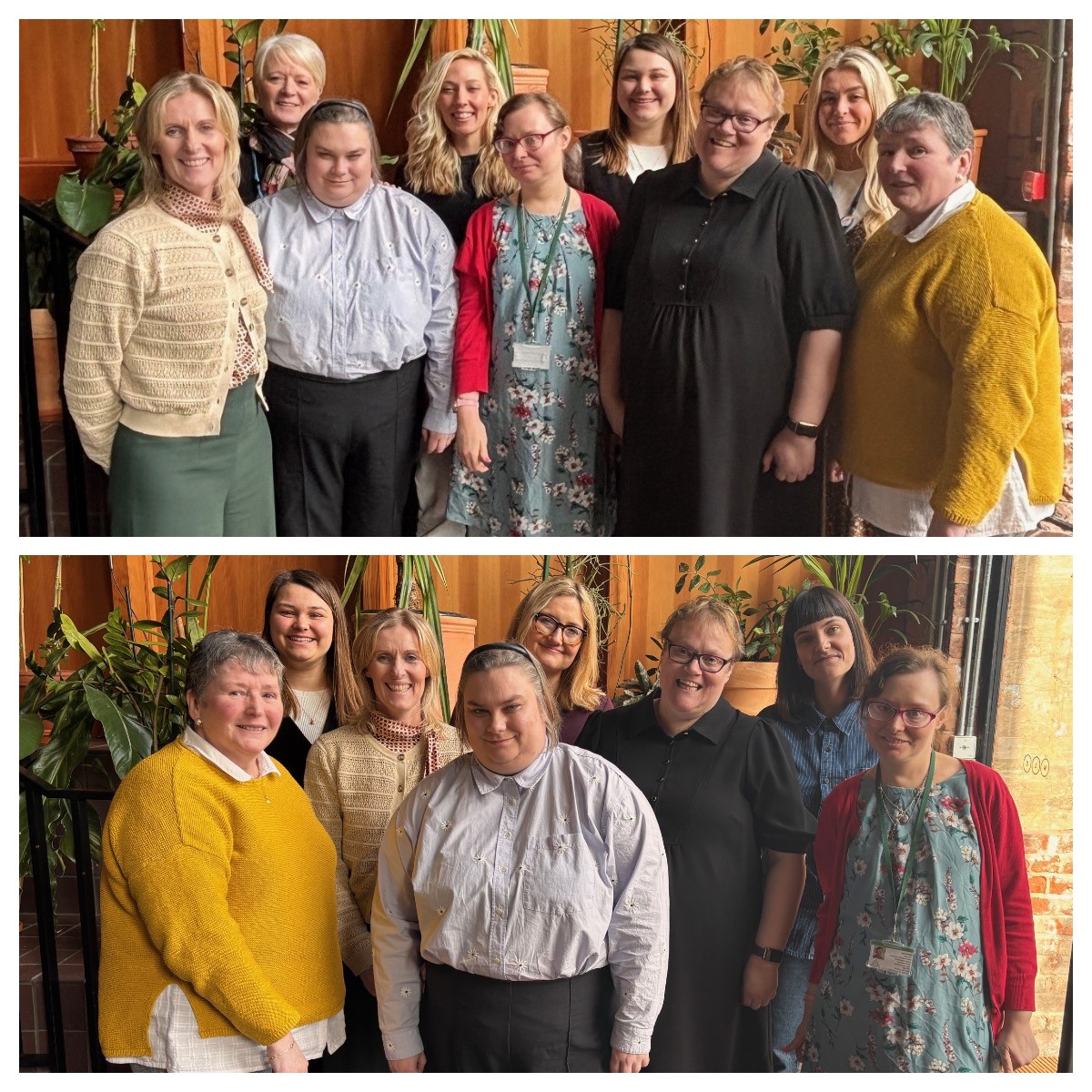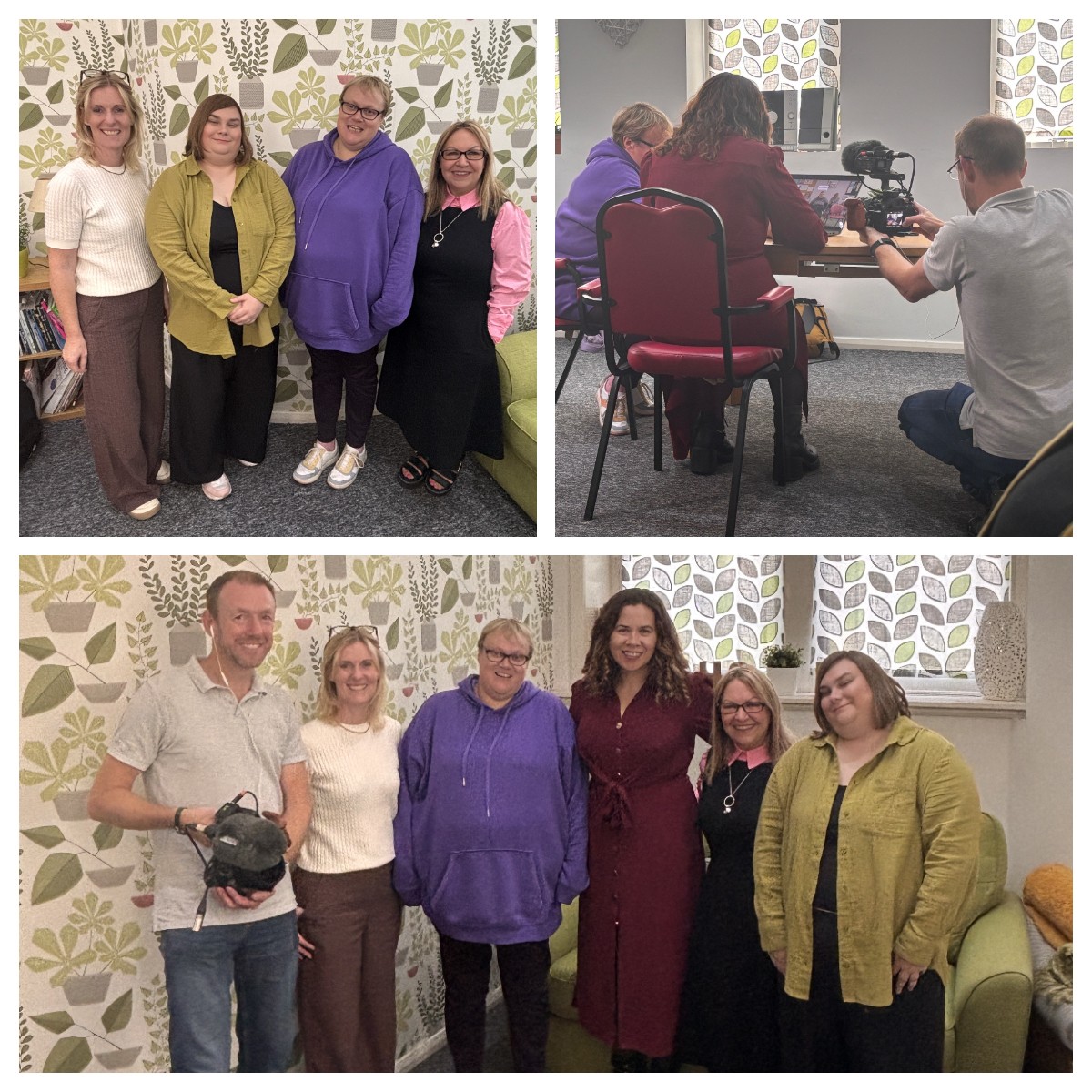Published on: 19th June 2025
 A series of films has been launched to support autistic women and women with a learning disability to access potentially life-saving cervical cancer screening.
A series of films has been launched to support autistic women and women with a learning disability to access potentially life-saving cervical cancer screening.
Believed to the first of their kind in the country, the films have been made by autistic women and women with a learning disability for their peers – with a breadth of real-life experiences shaping every stage of development.
This group of women often experience poorer health and shorter life expectancy compared to the general population. They also face barriers to cancer screening programmes, leading to lower uptake. Cervical screening non-attendance is directly linked to an increased risk of cancer.
After being awarded just over £143,000 by the Greater Manchester Cancer Alliance, a range of partners came together to develop several bite-size accessible films about cervical cancer screening and the HPV vaccine.
Progress through partnership
 We've worked with The University of Manchester, Pathways Associates, Rochdale Gateway Leisure, People First Tameside, the National Institute for Health and Care Research (NIHR) Manchester Biomedical Research Centre (BRC), Haughton Vale and Thornley House Medical Centres,The Christie NHS Foundation Trust and NHS Greater Manchester.
We've worked with The University of Manchester, Pathways Associates, Rochdale Gateway Leisure, People First Tameside, the National Institute for Health and Care Research (NIHR) Manchester Biomedical Research Centre (BRC), Haughton Vale and Thornley House Medical Centres,The Christie NHS Foundation Trust and NHS Greater Manchester.
Lizardfish TV, a film company with experience of working with autistic people and those with a learning disability, was appointed and four women who are autistic and/or have a learning disability wrote the scripts and starred in the films.
The scripts were checked by academics and professionals for accuracy and tested with people with lived experience.
The films aim to support choice and decision-making about immunisation and screening and to prepare people mentally and practically. They cover a variety of topics, including the importance of early detection, what screening entails, practical tips to make the process easier and what to expect after the test.
One video is aimed at parents, focusing on the importance of allowing their child to have the HPV vaccine and one is aimed at health professionals explaining why people with a learning disability might not access screening and offering tips on supporting and communicating with them.
Change the story
Leeanne McKew, 32, from Tameside is a member of People First Tameside and one of the women who developed and starred in the films. She said: “I think the films will be really helpful for women who are unsure about screening. Having information helps reduce anxiety.
“I enjoyed everything about the project, including coming up with ideas and hearing other ideas, and the filming was fun. It was good we could film in a real clinic, as people can see what it’s really like.
“My advice to others is to get it done, it’s worth it. And if you’re worried, talk to a friend or family and see if they can come with you.
“If we can get it right for autistic people and those with a learning disability, we can get it right for everyone. If people want to change the story, they need to listen to us, so projects like this are really important.”
Ali Jones, director of early diagnosis at the Greater Manchester Cancer Alliance, said: “Uptake of cervical screening is 30% for people with a learning disability, versus 70% for people without.
“Evidence shows films are an effective way to communicate health information to people with a learning disability. We were delighted to fund this important piece of work via our early diagnosis innovation fund, supporting local projects with a focus on early cancer diagnosis.
Dr Janine Owens is a research fellow at The University of Manchester and project lead. She said: “Having worked on including people in choices and decisions about their health for 25 years, I feel the videos are a valuable way of enabling a marginalised group to make their own choice about cervical screening, with support. The whole process was hugely enjoyable. This is down to our co-producers and partners who challenged us to think in alternative ways.”
Carol Lonergan, our learning disability health inequalities lead, featured in some of the films. She said: “Clear, accessible information empowers people to make informed decisions about their health. By increasing uptake, we can ensure more women receive early detection and treatment if needed.
“Being in the films was outside my comfort zone, but I want to do everything I can to make sure autistic people and those with a learning disability are supported to live longer, healthier lives.”
Find the films on YouTube
The films are available on YouTube
They’re being shared with a range of organisations and professionals who support autistic people or those with a learning disability. They’ll also be embedded into the GP annual health check toolkit and form part of a new reasonably adjusted cervical screening pathway.
In early June, Leeanne, her fellow People First Tameside member Emilie Ashe, and Carol were interviewed for an ITV Granada Reports broadcast piece . This will air this evening (19 June) at 6pm.
In the picture
Photo captions, from top:
Photo 1 (left to right): Liz Wright, CEO of People First Tameside; Jenny Jones, Greater Manchester senior clinical lead for learning disabilities and health inequalities; Leeanne McKew, member of People First Tameside; Vic Cook, scriptwriter and development producer at Lizardfish TV; Katie White, member of People First Tameside; Dr Melissa Kirby, research associate at Manchester University; Emilie Ashe, member of People First Tameside; Emily Pickup, primary care assistant practitioner, Pennine Care; Dr Jan Owens, research fellow at Manchester University and project lead.
Photo 2 (left to right): Dr Jan Owens, Dr Melissa Kirby, Liz Wright, Leeanne McKew, Dr Helena O'Flynn, Dr Helena O’Flynn, GP and early diagnosis lead for gynaecological cancers for the GMCA; Emilie Ashe; Dr Lorna McWilliams, research fellow at University of Manchester; Katie White.
Photo 3 (left to right): Liz Wright, Leeanne McKew, Emilie Ashe, Carol Lonergan, our learning disability health inequalities lead.
Photo 4: Emilie is interviewed by ITV journalist Anna Youssef and cameraman Paul Hilton.
Photo 5 (left to right): Paul Hilton, Liz Wright, Emilie Ashe, Anna Youssef, Leeanne McKew, Carol Lonergan and Leeanne McKew